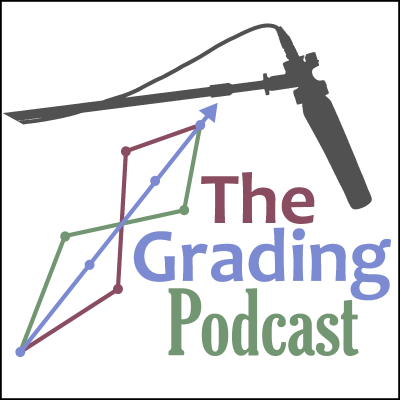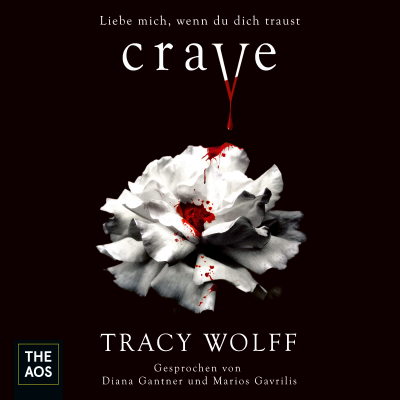
The Grading Podcast
Englisch
Kostenlos bei Podimo
Kostenlos hören bei Podimo
Starte jetzt und verbinde dich mit deinen Lieblingspodcaster*innen
- Vertraut von über 1 Mio. deutschen Hörer*innen
- Über 1.000 lokale Podcasts und Shows – nur bei Podimo
- Keine Zahlung nötig
Mehr The Grading Podcast
Grading is an extremely important and largely unexamined piece of the classroom puzzle. In this weekly podcast, Sharona Krinsky and Robert Bosley, two long time classroom instructors from the K-12 and Higher Ed worlds, explore the nuts and bolts of grading student work. From looking at traditional grading practices to other types of grading such as alternative grading, equitable grading, ungrading, and more, join us as we and our guests provide the research, practices, and details needed to create a more effective grading practice that supports student learning and success. For more information, check out our website, https://www.thegradingpod.com
Alle Folgen
137 Folgen136 - Grading for Physicists, Not Point Collectors - with Chris Sarkonak
Chris Sarkonak—high school physics and math teacher in Brandon, Manitoba and a PhD student in educational assessment—joins Boz and Sharona to describe his winding journey from traditional grading to standards-based grading, back again, and ultimately toward a student-centered, skills-focused, largely ungraded approach shaped by COVID-era conferencing, Building Thinking Classrooms, and the “ungrading” ecosystem of ideas. Chris shares how removing itemized grades reduced competition and unlocked real collaboration, how he structures learning with labs-first experiences, vertical whiteboards, “note-making” instead of note-taking, and spaced, skills-based check-ins, and how students co-create a “What does a grade look like?” document to anchor end-of-term self-assessment conferences with real criteria—not vibes. The punchline: his expanded, more diverse physics program isn’t “watered down”—students match (or beat) prior exam averages, earn strong AP Physics pass rates with minimal traditional test prep, and even crack provincial top-10 rankings in elite national-level contests, prompting colleagues to ask how to make their classrooms work the same way. Links Please note - any books linked here are likely Amazon Associates links. Clicking on them and purchasing through them helps support the show. Thanks for your support! 1. The (Un)Grading Spectrum, by Chris Sarkonak [https://growbeyondgrades.org/blog/the-ungrading-spectrum] 2. This is How Learning Should Fell, by Chris Sarkonak [https://www.teacher2teacher.education/2025/03/05/this-is-how-learning-should-feel/] 3. Skills-Based Grading (Simplified), by Scott Brunner, @BrunnerPhysics [https://www.physicstory.com/2021/07/skills-based-grading-simplified-update.html] 4. Hacking Assessment: 10 Ways to Go Gradeless in a Traditional Grades School, Starr Sackstein [https://amzn.to/4qE1M9q] Resources The Center for Grading Reform [https://www.centerforgradingreform.org/] - seeking to advance education in the United States by supporting effective grading reform at all levels through conferences, educational workshops, professional development, research and scholarship, influencing public policy, and community building. The Grading Conference [https://www.thegradingconference.com/] - an annual, online conference exploring Alternative Grading in Higher Education & K-12. Some great resources to educate yourself about Alternative Grading: 1. The Grading for Growth Blog [https://gradingforgrowth.com/] 2. The Grading Conference [https://www.thegradingconference.com/] 3. The Intentional Academia Blog [https://intentionalacademia.substack.com/] Recommended Books on Alternative Grading: 1. Grading for Growth [https://www.amazon.com/Grading-Growth-Alternative-Practices-Engagement/dp/1642673811/ref=sr_1_1?crid=2AY77FRS7LWBJ&keywords=grading+for+growth&qid=1690223954&sprefix=grading+for+growth%252Caps%252C122&sr=8-1&_encoding=UTF8&tag=thegradingpod-20&linkCode=ur2&linkId=fe8d967e9ef22adcf74c58fbd3b9392b&camp=1789&creative=9325], by Robert Talbert and David Clark 2. Specifications Grading [https://www.amazon.com/Specifications-Grading-Restoring-Motivating-Students/dp/1620362422/ref=sr_1_1?crid=IIE9IBXJOZY9&keywords=specifications+grading&qid=1690228778&sprefix=specifications+grading%252Caps%252C131&sr=8-1&_encoding=UTF8&tag=thegradingpod-20&linkCode=ur2&linkId=488cafcb421ce6921a7790e129a928b7&camp=1789&creative=9325], by Linda Nilsen 3. Undoing the Grade [https://www.amazon.com/dp/B0CFCZ5VCS?ref_=cm_sw_p_kb_dp&tag=thegradingpod-20&linkCode=kpe], by Jesse Stommel Follow us on Bluesky, Facebook and Instagram - @thegradingpod. To leave us a comment, please go to our website: www.thegradingpod.com and leave a comment on this episode's page. If you would like to be considered to be a guest on this show, please reach out using the Contact Us form on our website, www.thegradingpod.com [https://www.thegradingpod.com/]. All content of this podcast and website are solely the opinions of the hosts and guests and do not necessarily represent the views of California State University Los Angeles or the Los Angeles Unified School District. Music Country Rock performed by Lite Saturation [https://www.youtube.com/watch?v=SuEhnFL_D38], licensed under a Attribution-NonCommercial-NoDerivatives 4.0 International License [https://creativecommons.org/licenses/by-nc-nd/4.0/].
135 - The Interaction of Alt Grading, Trauma-Informed Pedagogy, & Pedagogy of Kindness
In this episode, Boz and Sharona explore how trauma-informed pedagogy and “teaching with kindness” intersect with alternative grading, especially through the often-overlooked impact of syllabus tone and classroom language. Sparked by Acacia Ackles’ “Teaching Through Trauma” post on the Grading for Growth blog and Cate Denial’s work on kinder syllabus design, they unpack how common “control” policies around devices, academic integrity, and participation can communicate suspicion and unintentionally amplify student anxiety. They connect key trauma-informed principles, such as safety, transparency, support, voice and choice, collaboration, and resilience, to familiar alternative grading practices like feedback loops, multiple opportunities to demonstrate learning, clear expectations, and structures that normalize help-seeking. Along the way, they wrestle with tensions like cold calling and behaviorism, arguing for approaches that reduce surprise, offer opt-outs when needed, and build environments where students want to participate. The episode closes with gratitude for a community willing to be vulnerable about what’s not working, and a reminder that shifting grading can be the “thread” that unravels deeper, more humane teaching practices. Links Please note - any books linked here are likely Amazon Associates links. Clicking on them and purchasing through them helps support the show. Thanks for your support! * Teaching Through Trauma (Grading for Growth Blog) [https://gradingforgrowth.com/p/teaching-through-trauma] * What Do Our Syllabi Really Say (Cate Denial's Blog - Pedagogy of Kindness) [https://catherinedenial.org/blog/uncategorized/what-do-our-syllabi-really-say/] * Trauma-Informed Pedagogy, from the University of Oregon [https://teaching.uoregon.edu/resources/trauma-informed-pedagogy-tip#what] * A Pedagogy of Kindness [https://amzn.to/4aDdDj7], Denial, Cate Resources The Center for Grading Reform [https://www.centerforgradingreform.org/] - seeking to advance education in the United States by supporting effective grading reform at all levels through conferences, educational workshops, professional development, research and scholarship, influencing public policy, and community building. The Grading Conference [https://www.thegradingconference.com/] - an annual, online conference exploring Alternative Grading in Higher Education & K-12. Some great resources to educate yourself about Alternative Grading: * The Grading for Growth Blog [https://gradingforgrowth.com/] * The Grading Conference [https://www.thegradingconference.com/] * The Intentional Academia Blog [https://intentionalacademia.substack.com/] Recommended Books on Alternative Grading: * Grading for Growth [https://www.amazon.com/Grading-Growth-Alternative-Practices-Engagement/dp/1642673811/ref=sr_1_1?crid=2AY77FRS7LWBJ&keywords=grading+for+growth&qid=1690223954&sprefix=grading+for+growth%252Caps%252C122&sr=8-1&_encoding=UTF8&tag=thegradingpod-20&linkCode=ur2&linkId=fe8d967e9ef22adcf74c58fbd3b9392b&camp=1789&creative=9325], by Robert Talbert and David Clark * Specifications Grading [https://www.amazon.com/Specifications-Grading-Restoring-Motivating-Students/dp/1620362422/ref=sr_1_1?crid=IIE9IBXJOZY9&keywords=specifications+grading&qid=1690228778&sprefix=specifications+grading%252Caps%252C131&sr=8-1&_encoding=UTF8&tag=thegradingpod-20&linkCode=ur2&linkId=488cafcb421ce6921a7790e129a928b7&camp=1789&creative=9325], by Linda Nilsen * Undoing the Grade [https://www.amazon.com/dp/B0CFCZ5VCS?ref_=cm_sw_p_kb_dp&tag=thegradingpod-20&linkCode=kpe], by Jesse Stommel Follow us on Bluesky, Facebook and Instagram - @thegradingpod. To leave us a comment, please go to our website: www.thegradingpod.com and leave a comment on this episode's page. If you would like to be considered to be a guest on this show, please reach out using the Contact Us form on our website, www.thegradingpod.com [https://www.thegradingpod.com/]. All content of this podcast and website are solely the opinions of the hosts and guests and do not necessarily represent the views of California State University Los Angeles or the Los Angeles Unified School District. Music Country Rock performed by Lite Saturation [https://www.youtube.com/watch?v=SuEhnFL_D38], licensed under a Attribution-NonCommercial-NoDerivatives 4.0 International License [https://creativecommons.org/licenses/by-nc-nd/4.0/].
134 - (Replay) Exploring Alt Grading in Physical Education (in more detail) with Josh Ogilvie
Due to unexpected technical difficulties we were unable to record a new episode for this week. We will be back with new episodes next week! In the meantime, please enjoy this incredible conversation and deep conversation about alt grading in Physical Education, including the details! Join us as Sharona and Bosley talk about alt grading with Josh Ogilvie, a listener and a 22 year high school PE teacher in Canada. (Originally aired December 10, 2024). Links Please note - any books linked here are likely Amazon Associates links. Clicking on them and purchasing through them helps support the show. Thanks for your support! * PHE Canada [https://phecanada.ca/] * Rebooting Assessment: A Practical Guide for Balancing Conversations, Performances, and Products (How to Establish Performance-Based, Balanced Assessment in the Classroom) [https://amzn.to/414il52] by Damien Cooper Contact Josh Ogilvie: * @joshogilvie4 on Twitter * @joshogilvie.bsky.social on Bluesky * Josh Ogilvie [https://www.linkedin.com/in/josh-ogilvie/] on LinkedIn * www.jogilvie.com [https://www.jogilvie.com/] Resources The Center for Grading Reform [https://www.centerforgradingreform.org/] - seeking to advance education in the United States by supporting effective grading reform at all levels through conferences, educational workshops, professional development, research and scholarship, influencing public policy, and community building. The Grading Conference [https://www.thegradingconference.com/] - an annual, online conference exploring Alternative Grading in Higher Education & K-12. Some great resources to educate yourself about Alternative Grading: * The Grading for Growth Blog [https://gradingforgrowth.com/] * The Grading Conference [https://www.thegradingconference.com/] * The Intentional Academia Blog [https://intentionalacademia.substack.com/] Recommended Books on Alternative Grading: * Grading for Growth [https://www.amazon.com/Grading-Growth-Alternative-Practices-Engagement/dp/1642673811/ref=sr_1_1?crid=2AY77FRS7LWBJ&keywords=grading+for+growth&qid=1690223954&sprefix=grading+for+growth%252Caps%252C122&sr=8-1&_encoding=UTF8&tag=thegradingpod-20&linkCode=ur2&linkId=fe8d967e9ef22adcf74c58fbd3b9392b&camp=1789&creative=9325], by Robert Talbert and David Clark * Specifications Grading [https://www.amazon.com/Specifications-Grading-Restoring-Motivating-Students/dp/1620362422/ref=sr_1_1?crid=IIE9IBXJOZY9&keywords=specifications+grading&qid=1690228778&sprefix=specifications+grading%252Caps%252C131&sr=8-1&_encoding=UTF8&tag=thegradingpod-20&linkCode=ur2&linkId=488cafcb421ce6921a7790e129a928b7&camp=1789&creative=9325], by Linda Nilsen * Undoing the Grade [https://www.amazon.com/dp/B0CFCZ5VCS?ref_=cm_sw_p_kb_dp&tag=thegradingpod-20&linkCode=kpe], by Jesse Stommel Follow us on Bluesky, Facebook and Instagram - @thegradingpod. To leave us a comment, please go to our website: www.thegradingpod.com and leave a comment on this episode's page. If you would like to be considered to be a guest on this show, please reach out using the Contact Us form on our website, www.thegradingpod.com [https://www.thegradingpod.com/]. All content of this podcast and website are solely the opinions of the hosts and guests and do not necessarily represent the views of California State University Los Angeles or the Los Angeles Unified School District. Music Country Rock performed by Lite Saturation [https://www.youtube.com/watch?v=SuEhnFL_D38], licensed under a Attribution-NonCommercial-NoDerivatives 4.0 International License [https://creativecommons.org/licenses/by-nc-nd/4.0/].
133 - To Display (Grades) or Not To Display (Grades) - That is the Question!
In this episode of The Grading Podcast, Boz and Sharona dig into a 2025 longitudinal study that tackles a surprisingly practical question: should we show students the numeric grade on an assignment, or give feedback without displaying the score? Using a well-controlled design, the research tracks both academic performance and emotional responses as grades are introduced, removed, and reintroduced alongside written comments. The results complicate a lot of common assumptions while also highlighting how quickly students adapt to whatever grading environment they’re in. Along the way, the conversation connects the findings to feedback quality, Control-Value Theory, and the bigger takeaway the authors land on: consistency matters, and if grades must be used, students need explicit framing that links grades to learning outcomes. Links Please note - any books linked here are likely Amazon Associates links. Clicking on them and purchasing through them helps support the show. Thanks for your support! 1. Impact of Displaying Grades Vs Not Displaying Grades on Academic Performance and Emotional Outcomes While Delivering Feedback Comments: A Longitudinal Study [https://www.tandfonline.com/doi/full/10.1080/10627197.2025.2455128#abstract], Panadero, E. and Sánchez-Iglesias, I., 2025 Resources The Center for Grading Reform [https://www.centerforgradingreform.org/] - seeking to advance education in the United States by supporting effective grading reform at all levels through conferences, educational workshops, professional development, research and scholarship, influencing public policy, and community building. The Grading Conference [https://www.thegradingconference.com/] - an annual, online conference exploring Alternative Grading in Higher Education & K-12. Some great resources to educate yourself about Alternative Grading: 1. The Grading for Growth Blog [https://gradingforgrowth.com/] 2. The Grading Conference [https://www.thegradingconference.com/] 3. The Intentional Academia Blog [https://intentionalacademia.substack.com/] Recommended Books on Alternative Grading: 1. Grading for Growth [https://www.amazon.com/Grading-Growth-Alternative-Practices-Engagement/dp/1642673811/ref=sr_1_1?crid=2AY77FRS7LWBJ&keywords=grading+for+growth&qid=1690223954&sprefix=grading+for+growth%252Caps%252C122&sr=8-1&_encoding=UTF8&tag=thegradingpod-20&linkCode=ur2&linkId=fe8d967e9ef22adcf74c58fbd3b9392b&camp=1789&creative=9325], by Robert Talbert and David Clark 2. Specifications Grading [https://www.amazon.com/Specifications-Grading-Restoring-Motivating-Students/dp/1620362422/ref=sr_1_1?crid=IIE9IBXJOZY9&keywords=specifications+grading&qid=1690228778&sprefix=specifications+grading%252Caps%252C131&sr=8-1&_encoding=UTF8&tag=thegradingpod-20&linkCode=ur2&linkId=488cafcb421ce6921a7790e129a928b7&camp=1789&creative=9325], by Linda Nilsen 3. Undoing the Grade [https://www.amazon.com/dp/B0CFCZ5VCS?ref_=cm_sw_p_kb_dp&tag=thegradingpod-20&linkCode=kpe], by Jesse Stommel Follow us on Bluesky, Facebook and Instagram - @thegradingpod. To leave us a comment, please go to our website: www.thegradingpod.com and leave a comment on this episode's page. If you would like to be considered to be a guest on this show, please reach out using the Contact Us form on our website, www.thegradingpod.com [https://www.thegradingpod.com/]. All content of this podcast and website are solely the opinions of the hosts and guests and do not necessarily represent the views of California State University Los Angeles or the Los Angeles Unified School District. Music Country Rock performed by Lite Saturation [https://www.youtube.com/watch?v=SuEhnFL_D38], licensed under a Attribution-NonCommercial-NoDerivatives 4.0 International License [https://creativecommons.org/licenses/by-nc-nd/4.0/].
132 - New Semester, New Grading: Building Trust Before Content
A new semester is days away—and Sharona is stepping back into teaching precalculus for the first time in about a decade, this time with today’s alternative grading practices (and one big new twist). Before the “math content” really ramps up, Sharona and Boz make the case for spending serious time up front on what actually makes the semester work: trust, collaboration, and shared understanding of how learning will be evaluated. Links Please note - any books linked here are likely Amazon Associates links. Clicking on them and purchasing through them helps support the show. Thanks for your support! 1. The Three Gamers Activity [https://www.secondaryenglishcoffeeshop.com/2020/03/building-classroom-community-through.html ] 2. Students as Partners in Learning Assessment [https://gradingforgrowth.com/p/students-as-partners-in-learning ] 3. How Much Can You Win [https://drive.google.com/file/d/1XzFHVVwHvrCJDSbey0L4-Ljk1VjBCdrR/view?usp=sharing] 4. Communicating Effectively with Students about Alternative Grading [https://gradingforgrowth.com/p/communicating-effectively-with-students] 5. The SAFE Approach to Earning Buy-in [https://gradingforgrowth.com/p/the-safe-approach-to-earning-buy?utm_source=publication-search] 6. Initial Draft of New Active Learning Activity Around Grading for Students - Laying the Groundwork for Collaborative Grading [https://drive.google.com/file/d/1MUMKl_AyHTwzhdNsLiJF8Bbp3YePBjuZ/view?usp=sharing] Resources The Center for Grading Reform [https://www.centerforgradingreform.org/] - seeking to advance education in the United States by supporting effective grading reform at all levels through conferences, educational workshops, professional development, research and scholarship, influencing public policy, and community building. The Grading Conference [https://www.thegradingconference.com/] - an annual, online conference exploring Alternative Grading in Higher Education & K-12. Some great resources to educate yourself about Alternative Grading: 1. The Grading for Growth Blog [https://gradingforgrowth.com/] 2. The Grading Conference [https://www.thegradingconference.com/] 3. The Intentional Academia Blog [https://intentionalacademia.substack.com/] Recommended Books on Alternative Grading: 1. Grading for Growth [https://www.amazon.com/Grading-Growth-Alternative-Practices-Engagement/dp/1642673811/ref=sr_1_1?crid=2AY77FRS7LWBJ&keywords=grading+for+growth&qid=1690223954&sprefix=grading+for+growth%252Caps%252C122&sr=8-1&_encoding=UTF8&tag=thegradingpod-20&linkCode=ur2&linkId=fe8d967e9ef22adcf74c58fbd3b9392b&camp=1789&creative=9325], by Robert Talbert and David Clark 2. Specifications Grading [https://www.amazon.com/Specifications-Grading-Restoring-Motivating-Students/dp/1620362422/ref=sr_1_1?crid=IIE9IBXJOZY9&keywords=specifications+grading&qid=1690228778&sprefix=specifications+grading%252Caps%252C131&sr=8-1&_encoding=UTF8&tag=thegradingpod-20&linkCode=ur2&linkId=488cafcb421ce6921a7790e129a928b7&camp=1789&creative=9325], by Linda Nilsen 3. Undoing the Grade [https://www.amazon.com/dp/B0CFCZ5VCS?ref_=cm_sw_p_kb_dp&tag=thegradingpod-20&linkCode=kpe], by Jesse Stommel Follow us on Bluesky, Facebook and Instagram - @thegradingpod. To leave us a comment, please go to our website: www.thegradingpod.com and leave a comment on this episode's page. If you would like to be considered to be a guest on this show, please reach out using the Contact Us form on our website, www.thegradingpod.com [https://www.thegradingpod.com/]. All content of this podcast and website are solely the opinions of the hosts and guests and do not necessarily represent the views of California State University Los Angeles or the Los Angeles Unified School District. Music Country Rock performed by Lite Saturation [https://www.youtube.com/watch?v=SuEhnFL_D38], licensed under a Attribution-NonCommercial-NoDerivatives 4.0 International License [https://creativecommons.org/licenses/by-nc-nd/4.0/].















































